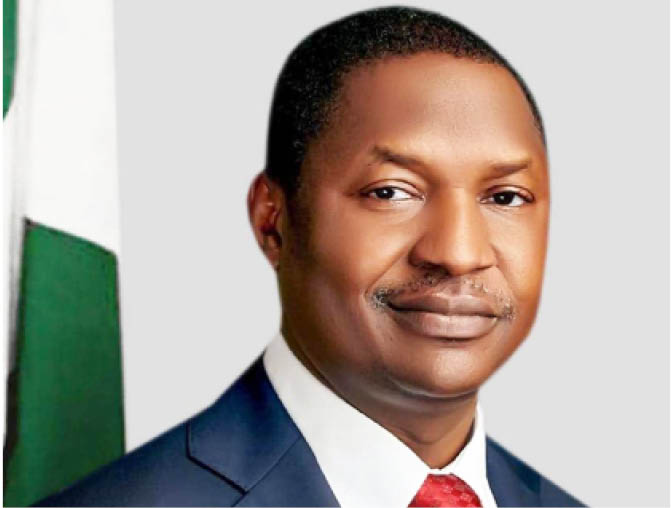Nigeria was ranked low among the 128 countries surveyed in the 2020 Rule of Law Index by the World Justice Project (WJP).
WJP, which works to promote and measure rule of law around the world and to support practitioners, conducts annual survey to ascertain progress in key areas: Constraints on Government Powers, Absence of Corruption, Open Government, Fundamental Rights, Order and Security, Regulatory Enforcement, Civil Justice, Criminal Justice and Informal Justice.
Nigeria particularly performed poorly in Absence of Corruption and Order and Security by falling below the 100 top countries.
According to WJP, Absence of Corruption measures three forms of corruption: bribery, improper influence by public or private interests and misappropriation of public funds or other resources.
WJP explained that, “These three forms of corruption are examined with respect to government officers in the executive branch, the judiciary, the military, police and the legislature.”
Order and Security measures how well a society ensures the security of persons and property. It measures this in the areas of “absence of crime”, “absence of civil conflict”, and “absence of violent redress”.
WJP said, “Security is one of the defining aspects of any rule of law society and is a fundamental function of the state. It is also a precondition for the realisation of the rights and freedoms that the rule of law seeks to advance.”
Besides the 128 countries and jurisdictions surveyed, interviews were conducted in 130,000 households and 4,000 experts were surveyed on 500 variables, according to the results contained in the WJP website.
In the latest results published in March, Nigeria scored 0.43 on a scale of 0 to 1 in the overall Rule of Law Factor Score and was ranked 108 globally on the Factor Rank. The overall score indicates the strongest adherence to rule of law.
Nigeria, however, scored better than Guinea out of the 13 West African countries surveyed on the overall. Other West African countries like Ghana scored 0.57 and ranked 51; Senegal scored 0.55 and ranked 52; Burkina Faso scored 0.51 and ranked 70; The Gambia scored 0.50 and ranked 74; Benin scored 0.50 and ranked 81 and Cote ‘Ivoire scored 0.46 and ranked 95.
Additionally, Liberia scored 0.45 and ranked 98; Togo scored 0.45 and ranked 99; Sierra Leone scored 0.45 and ranked 100; Niger scored 0.45 and ranked 103; Mali scored 0.44 and ranked 106 and Guinea scored 0.42 and ranked 111.
In the Order and Security index, Nigeria scored 0.36 to rank 127 globally, just above Afghanistan, which scored 0.29 to rank 128 out of the 128 countries surveyed.
In Absence of Corruption, Nigeria scored 0.33 to rank 109 globally, which was still below the top 100 countries. Rwanda scored highest in Sub-Saharan Africa with 0.63 and ranked 36 globally. Togo scored the highest in West Africa with 0.43 and ranked 78 globally.
In Fundamental Rights, Nigeria scored 0.46 to rank 99 globally. South Africa had the highest score in Sub-Saharan Africa at 0.64 and ranked 41. Ghana scored highest in West Africa at 0.61 and ranked 47 globally.
In Open Government, Nigeria scored 0.43 and ranked 94. South Africa scored Africa’s highest with 0.62 and ranked 30 globally. Rwanda had Africa’s second highest score with 0.58 and ranked 39 globally.
Under Regulatory Enforcement, Nigeria scored 0.43 to rank 99 globally. Sub-Saharan Africa’s highest score went to Rwanda at 0.59, with ranking of 37 globally. Ghana came second with 0.55 and ranked 50 globally.
Under Civil Justice, Nigeria had an improved score at 0.50 to rank 75 globally. Rwanda had Sub-Saharan Africa’s highest score with 0.64 and ranked 30 globally. South Africa scored 0.50 and ranked 75 globally.
Under Criminal Justice, Nigeria scored 0.40 and ranked 76 globally. Rwanda scored 0.54 as Sub-Saharan Africa’s highest score and ranked 42 globally. This was followed by South Africa with 0.53 score and ranked 44 globally.
Speaking on the latest survey during a webinar titled: “Rule of Law Challenges in Africa and the European Neighbourhood: How Should the EU Respond?”, which was organised by WJP and Konrad Adenaur-Stiftung on May 27, the Chief Engagement Officer of WJP, Ted Piccone, noted that findings of the survey in the last five years showed a strong correlation between countries with strong rule of law and the economy specifically, GDP per capita and other development indicators like health-infant mortality.
The office of the Attorney General of the Federation and Minister of Justice, through the media aide, Dr Umar Gwandu referred this newspaper to a recent survey by SERAP which shows that 56.7% of Nigerians from across the six geo-politcal zones are optmistic that the federal government’s anti-corruption fight is capable of reducing or ending corruption in Nigeria.

 Join Daily Trust WhatsApp Community For Quick Access To News and Happenings Around You.
Join Daily Trust WhatsApp Community For Quick Access To News and Happenings Around You.


